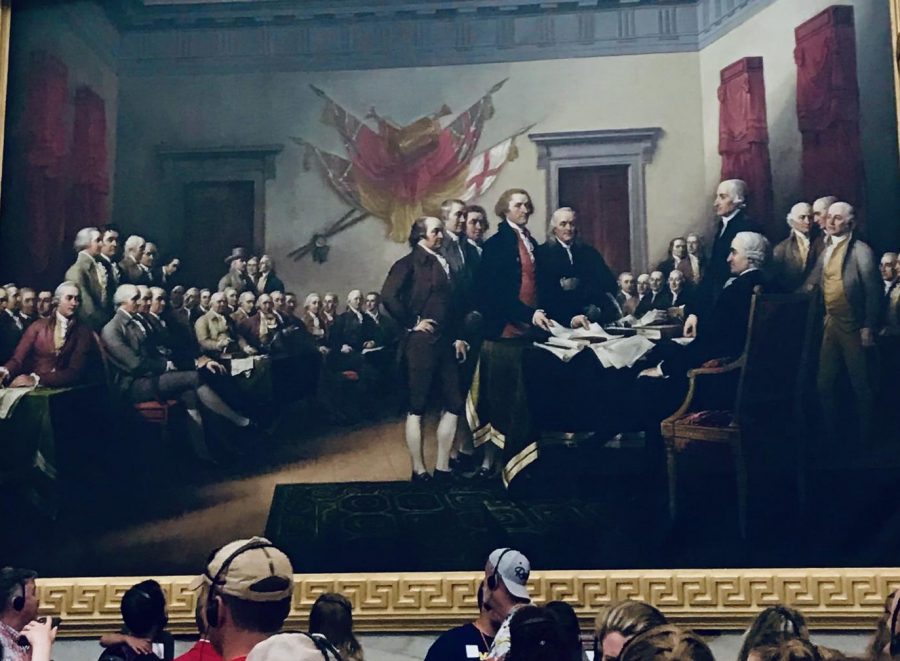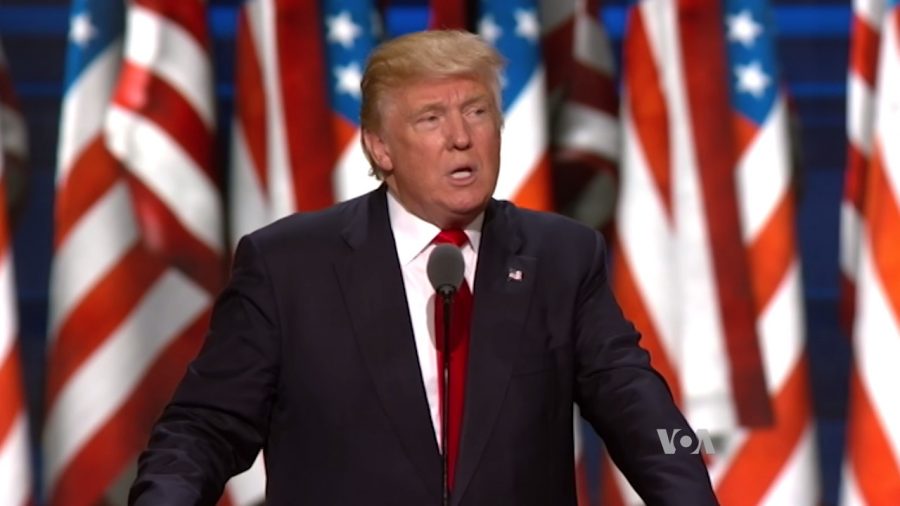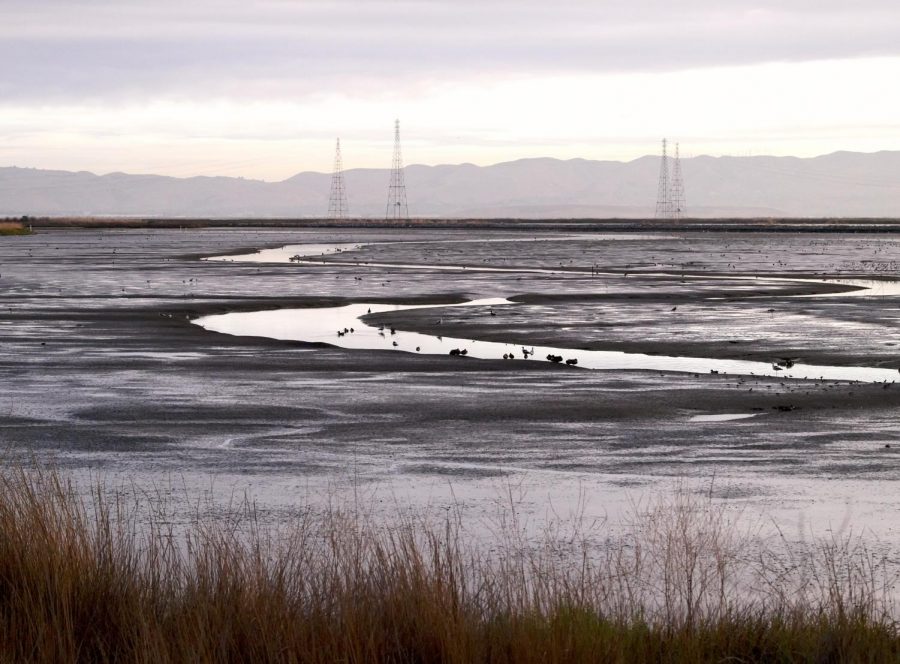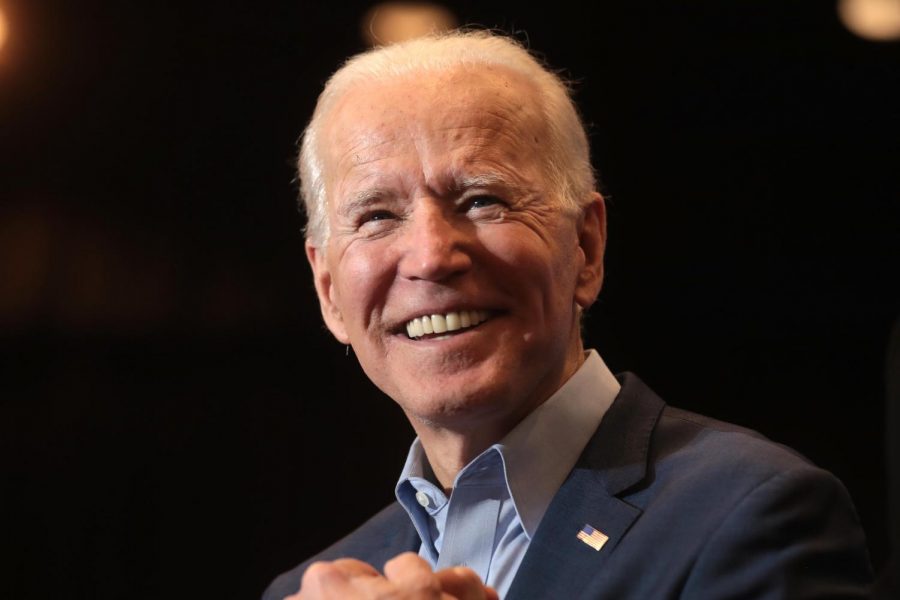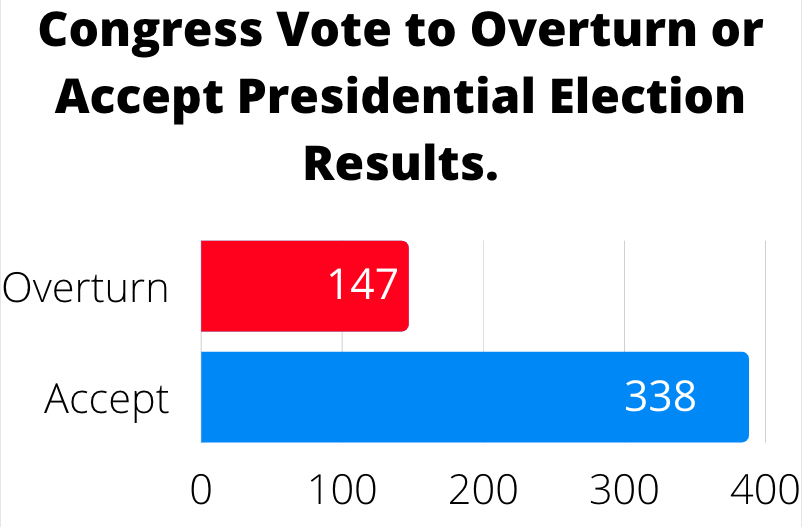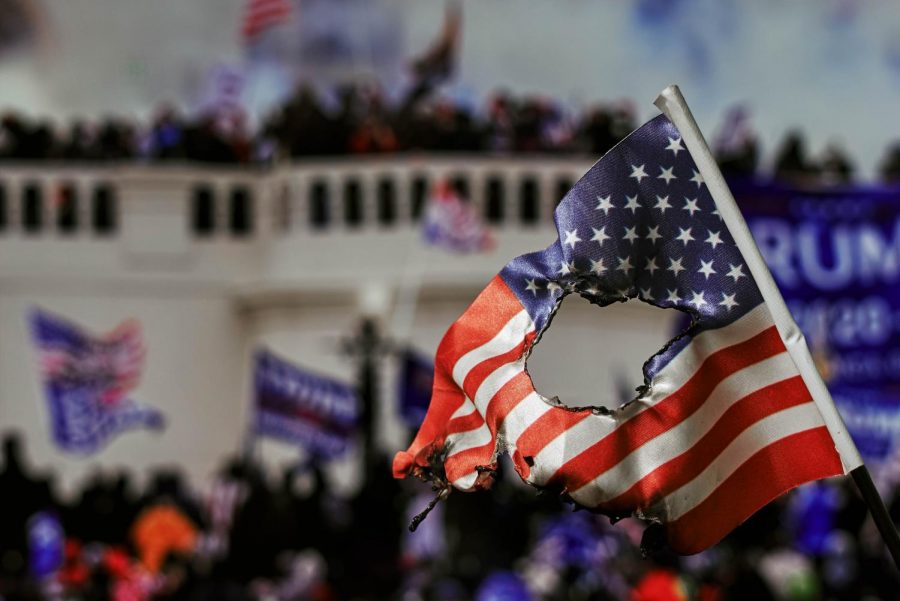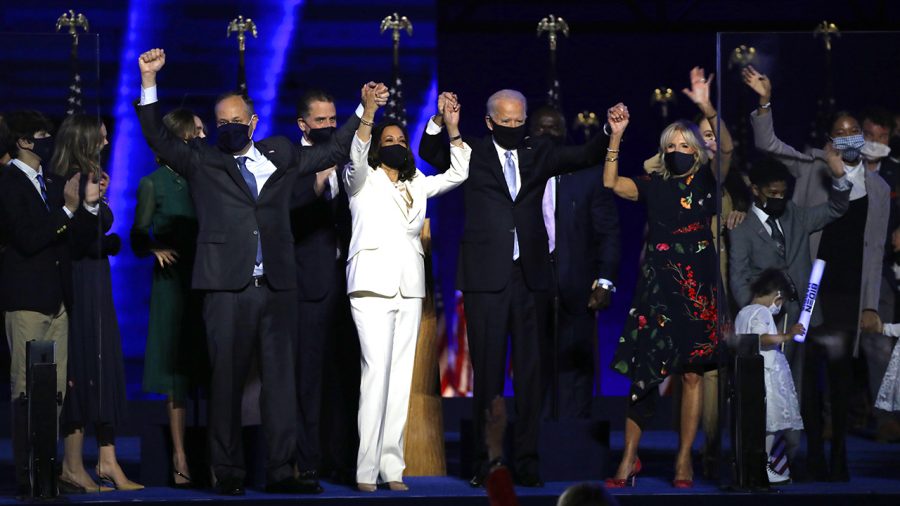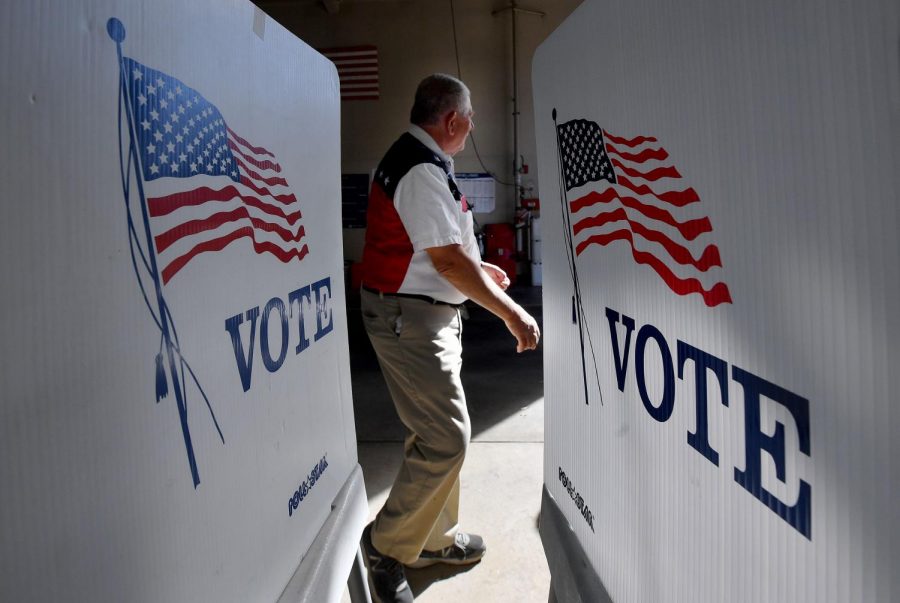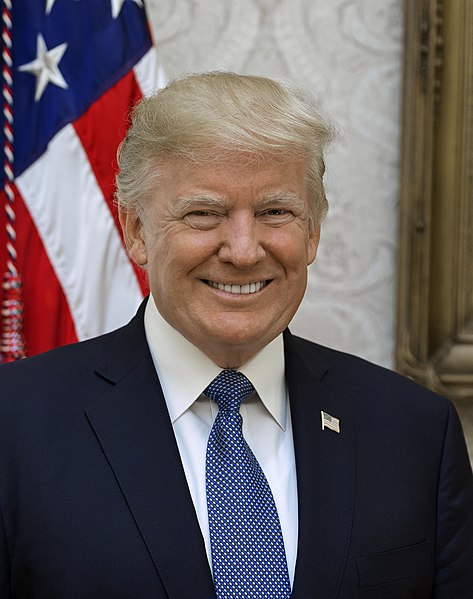
Warning: Story includes vulgarity.
President Donald Trump was inaugurated on January 20, 2017.
Trump was the first president to have no prior political experience, as most had held elected offices or had strong military backgrounds.
Most notable events from 2017 to 2020
-
Trump withdraws from the Trans-Pacific Partnership – January 23, 2017
Trump signed an executive action withdrawing the U.S. from the Trans-Pacific Partnership, a 12-nation trade deal negotiated by the Obama administration, which was awaiting congressional approval.
-
Executive order halts all refugee arrivals for 120 days – February 28, 2017
Trump signed an executive order halting all refugee arrivals for 120 days and banning travel to the U.S. from seven Muslim-majority countries for 90 days. Additionally, refugees from Syria were barred indefinitely from entering the U.S. The order was challenged in court.
-
Trump proclaims that the U.S. is withdrawing from the Paris climate accord – June 1, 2017
Trump proclaimed that the U.S. would withdraw from the Paris climate accord. He added that he was open to renegotiating aspects of the environmental agreement, which was signed by 175 countries in 2016.
-
Trump recognizes Jerusalem as Israel’s capital and announces plans to relocate the U.S. Embassy there – December 6, 2017
-
Trump issues orders to ban transgender individuals from serving in the military – March 23, 2018
The White House announced that it was adopting a policy, first proposed by Trump via a tweet in July 2017, banning most transgender individuals from serving in the military.
Trump pointed to “tremendous medical costs,” presumably gender reassignment surgeries covered by government health care, while also writing the military “cannot be burdened” by the “disruption that transgender in the military would entail.”
-
Trump authorizes joint military strike aimed at Syria’s chemical weapons – April 13, 2018
Trump authorized joint military strikes in Syria with the UK and France after reports the government used chemical weapons on civilians in Douma.
-
Trump Administration announces zero-tolerance policy for illegal border crossings – May 7, 2018
The Trump administration announced a “zero tolerance” policy for illegal border crossings. Sessions said that individuals who violate immigration law will be criminally prosecuted and warned that parents could be separated from children.
-
Trump declares the U.S. has defeated ISIS and orders a withdrawal of military from Syria – December 19, 2018
-
Government shuts down over border wall funding dispute – December 22, 2018
-
The longest partial government shutdown in U.S. history begins after Trump demands lawmakers allocate $5.7 billion in funding for a border wall before agreeing to sign a federal funding package.
-
Trump declares a national emergency to allocate funds to build a wall on the border with Mexico – February 15, 2019
-
The Mueller Report
March 22, 2019 – Mueller ended his investigation and delivered his report to Attorney General William Barr.
March 24, 2019 – Barr released a letter summarizing the principal conclusions from Mueller’s investigation. According to Barr’s four-page letter, the evidence was not sufficient to establish that members Trump’s campaign tacitly engaged in a criminal conspiracy with the Russian government to interfere with the election.
April 18, 2019 – A redacted version of the Mueller report was released. The first part of the 448-page document detailed the evidence gathered by Mueller’s team on potential conspiracy crimes and explained their decision not to charge individuals associated with the campaign. The second part of the report outlined 10 episodes involving possible obstruction of justice by the president. According to the report, Mueller’s decision not to charge Trump was rooted in Justice Department guidelines prohibiting the indictment of a sitting president. Mueller wrote that he would have cleared Trump if the evidence warranted exoneration. “If we had confidence after a thorough investigation of the facts that the President clearly did not commit obstruction of justice, we would so state,” Mueller wrote. “Based on the facts and the applicable legal standards, however, we are unable to reach that judgment.”
July 24, 2019 – Mueller testified before the House Judiciary Committee and the House Intelligence Committee.
-
Trump pressures Ukraine; sets the stage for later impeachment – July 25, 2019
Trump spoke on the phone with Ukrainian President Volodymyr Zelensky. Trump asked Zelensky for a “favor,” encouraging him to speak with Giuliani about investigating Biden. In the days before the call, Trump blocked nearly $400 million in military and security aid to Ukraine.
-
Space Force, a new military branch, is established – August 29, 2019
-
Impeachment
September 24, 2019 – House Speaker Nancy Pelosi announced the beginning of an impeachment inquiry related to the whistleblower complaint.
October 3, 2019 – Speaking to reporters outside the White House, Trump said both Ukraine and China should investigate alleged corruption involving Biden and his son. CNN reported that the President had brought up Biden and his family during a June phone call with Xi Jinping. In that call, Trump discussed the political prospects of Biden as well as Elizabeth Warren. He also told Jinping that he would remain quiet on the matter of Hong Kong protests. Notes documenting the conversation were placed on a highly secured server where the transcript from the Ukraine call was also stored.
December 10, 2019 – House Democrats unveiled two articles of impeachment, one for abuse of power and one for obstruction of Congress. In response to the articles, House Minority Leader Kevin McCarthy said, “It is not difficult to defend this President because this President did nothing that is impeachable.”
December 18, 2019 – The House of Representatives voted to impeach Trump, charging a president with high crimes and misdemeanors for just the third time in American history.
-
Airstrike in Iraq kills Qasem Soleimani – January 3, 2020
Speaking at Mar-a-Lago, Trump announced that a U.S. airstrike in Iraq had killed Qasem Soleimani, the leader of the Islamic Revolutionary Guards Corps Quds Force. “We took action last night to stop a war. We did not take action to start a war,” Trump said. During an evangelical event later in the day, Trump said that Soleimani was planning a major attack, though the administration did not provide evidence of the intelligence.
-
U.S.-Mexico-Agreement replace the North American Free Trade Agreement – January 29, 2020
-
Senate votes along party lines regarding impeachment – February 5, 2020
The Senate voted to acquit Trump on two articles of impeachment. Sen. Mitt Romney was the sole Republican to vote to convict on the charge of abuse of power, joining with all Senate Democrats in a 52-48 not guilty vote. On the obstruction of Congress charge, the vote fell along straight party lines, 53-47 for acquittal.
-
Trump hands responsibility for the pandemic to the state governors – March 2020
-
Trump pulls the U.S. out of the World Health Organization – May 29, 2020
Top controversial events from 2017 to 2020
-
Intelligence officials brief Trump on a dossier that contains allegations about his campaign’s ties to Russia – January 10, 2017
Intelligence officials briefed Trump on a dossier that contained allegations about his campaign’s ties to Russia and unverified claims about his personal life. The author of the dossier was a former British spy who was hired by a research firm that had been funded by both political parties to conduct opposition research on Trump.
-
FBI director confirms investigation into ties between Trump campaign and Russia – May 3, 2017
FBI Director James Comey confirmed that there was an ongoing investigation into ties between the Trump campaign and Russia during a hearing on Capitol Hill. Less than a week later, Trump fired Comey, citing a DOJ memo critical of the way he handled the investigation into Clinton’s emails.
-
Mueller appointed as special counsel to oversee the Russia probe – May 17, 2017
Former FBI Director Robert Mueller was appointed as special counsel to lead the probe into Russian meddling in the 2016 election, including potential collusion between Trump campaign associates and Russian officials. Deputy Attorney General Rod Rosenstein made the appointment because Attorney General Jeff Sessions recused himself in March from investigations into Trump’s campaign.
-
Activist killed by white supremacist at protest; Trump says there were “fine people on both sides” – August 15, 2017
After a violent clash between neo-Nazi activists and counterprotesters left one dead in Charlottesville, Virginia, Trump held an impromptu press conference in the lobby of Trump Tower and declared that there were “fine people” on both sides.
-
Trump pardons controversial sheriff without proper procedure – August 25, 2017
Trump’s first pardon was granted to former Arizona sheriff Joe Arpaio, who was convicted of criminal contempt for disregarding a court order in a racial-profiling case. Trump did not consult with lawyers at the Justice Department before announcing his decision.
-
Trump administration announces the end of the DACA program – September 5, 2017
The Trump administration announced that it was ending the Deferred Action for Childhood Arrivals (DACA), introduced by Obama to protect nearly 800,000 undocumented immigrants brought to the U.S. as children. Trump called on Congress to introduce legislation that would prevent DACA recipients from being deported. Multiple lawsuits were filed opposing the policy in federal courts and judges delayed the end of the program, asking the government to submit filings justifying the cancellation of DACA.
-
Trump refers to Haiti and African nations as “shithole countries” – January 11, 2018
During a White House meeting on immigration reform, Trump reportedly referred to Haiti and African nations as “shithole countries.” He reportedly said that the U.S. should get more people from countries like Norway.
-
Stormy Daniels reportedly paid to stay quiet about Trump – January 12, 2018
The Wall Street Journal reported that Trump had an alleged affair with an adult film star named Stephanie Clifford, also known as Stormy Daniels. The newspaper stated that Trump’s personal attorney, Michael Cohen, arranged a $130,000 payment for a nondisclosure agreement (NDA) weeks before Election Day in 2016. Trump denied the affair occurred. In March, Clifford sued Trump seeking to be released from the NDA. In response, Trump and his legal team agreed outside of court not to sue or otherwise enforce the NDA. The suit was dismissed and Clifford’s claims ruled moot, as the NDA had been rendered unenforceable. A California Superior Court judge ordered Trump to pay $44,100 to Clifford, to reimburse her attorneys’ fees in the legal battle surrounding her nondisclosure agreement.
-
Trump Foundation charity sued for violating state and federal law – June 14, 2018
-
Trump praises killing of Journalist Jamal Khashoggi – November 20, 2018
Trump released a statement backing Saudi Arabia in the wake of the murder of Washington Post journalist Jamal Khashoggi, a Virginia resident, killed in October at a Saudi consulate in Turkey. Khashoggi was a frequent critic of the Saudi regime. The Saudis initially denied any knowledge of his death, but then later said a group of rogue operators were responsible for his killing. U.S. officials have speculated that such a mission, including the 15 men sent from Riyadh, Saudi Arabia, to murder him, could not have been carried out without the authorization of Saudi leader Crown Prince Mohammed bin Salman. In the statement, Trump wrote, “Our intelligence agencies continue to assess all information, but it could very well be that the Crown Prince had knowledge of this tragic event, maybe he did and maybe he didn’t!”
-
Cohen pleads guilty to eight campaign-finance violations; Manafort convicted – August 21, 2018
Cohen pled guilty to eight federal charges, including two campaign finance violations. In court, he said that he orchestrated payments to silence women “in coordination and at the direction of a candidate for federal office.” On the same day, Trump’s former campaign chairman, Paul Manafort was convicted on eight counts of federal financial crimes. On December 12, Cohen was sentenced to three years in prison.
-
Guiliani clarifies campaign collusion statements – January 16, 2019
After nearly two years of Trump administration officials denying that anyone involved in his campaign colluded with the Russians to help his candidacy, Trump lawyer and former New York City mayor, Rudy Giuliani, said “I never said there was no collusion between the campaign or people in the campaign. I said the President of the U.S. There is not a single bit of evidence the President of the U.S. committed the only crime you can commit here, conspiring with the Russians to hack the DNC.”
-
Guiliani admits to pushing investigation of Biden’s son – May 1, 2019
The New York Times published a report that detailed how Giuliani, in his role as Trump’s personal attorney, was investigating allegations related to former Vice President Joe Biden, a potential Trump opponent in the 2020 presidential race. Biden’s son, Hunter Biden, served on the board of a Ukrainian energy company called Burisma Holdings. In 2016, the elder Biden pressured Ukraine to oust a prosecutor who had investigated Burisma for corruption. Giuliani suggested that Biden’s move was motivated by a desire to protect his son from criminal charges. Giuliani’s claims were undermined after Bloomberg reported that the Burisma investigation was “dormant” when Biden pressed the prosecutor to resign.
-
Trump says he may be willing to accept information about political rivals from a foreign government declaring that he’s willing to listen and wouldn’t necessarily call the FBI – June 12, 2019
-
Trump tells democratic congresswomen to “go back where you came from” – July 14, 2019
Via Twitter, Trump told Reps. Alexandria Ocasio-Cortez, Rashida Tlaib, Illhan Omar and Ayanna Pressley to “go back” to their home countries. Ocasio-Cortez, Tlaib and Pressley are natural-born U.S. citizens; Omar was born in Somalia, immigrated to the U.S. and became a citizen. On July 16, 2019, The House voted, 240-187, to condemn the racist language Trump used in his tweets about Ocasio-Cortez, Tlaib, Omar and Pressley.
-
A whistleblower files a complaint pertaining to Trump’s conduct on the Zelensky call – August 12, 2019
-
Trump settles lawsuit regarding fake charity – November 7, 2019
A judge ordered Trump to pay $2 million to settle a lawsuit against his charity filed by the New York state attorney general. According to the suit, Trump breached his fiduciary duty by allowing his presidential campaign to direct the distribution of donations. In a statement, Trump accused the attorney general of mischaracterizing the settlement for political purposes.
-
Trump attends March for Life rally – January 24, 2020
-
The Trump administration announces an expansion of the travel ban to include six new countries – January 31, 2020
-
Prior to Trump walking to St. John’s Church for a photo op, tear gas and rubber bullets are used to clear peaceful protesters in front of the White House – June 1, 2020
-
Controversies arise due to Trump’s response to the pandemic – March 2020
-
Trump withholds funding for post office to hamper voting by mail efforts

